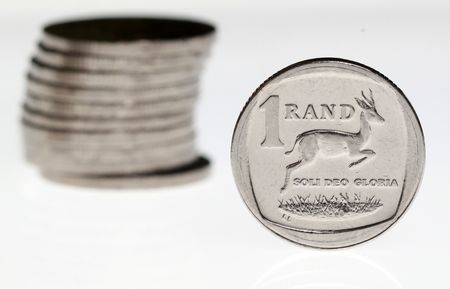By Katya Golubkova and Siyi Liu
TOKYO/SINGAPORE (Reuters) -Oil prices edged up on Thursday after falling in the previous session as a bigger-than-expected draw in U.S. crude stockpiles offset speculation that a U.S. push to end the Russia-Ukraine war may add barrels to an amply supplied market.
Brent crude futures were up 20 cents, or 0.31%, to $63.72 a barrel at 0714 GMT, while U.S. West Texas Intermediate crude futures were 22 cents, or 0.37%, higher at $59.66.
Both benchmarks rebounded a little after falling 2.1% during Wednesday’s session. The fall followed a Reuters report that the U.S. had signalled to Ukraine to accept a U.S.-drafted framework to end the war with Russia by giving up territory and some weapons, citing two sources familiar with the matter.
Prices dropped on speculation an end to the war would lead to the lifting of sanctions on Russian crude sales, releasing supply onto the market at the same time oil is being stored on tankers and major producers have increased output.
In a note on Thursday, ING analysts cautioned that Ukraine was unlikely to back the plan as it could see it favouring Russia, but “signs that the U.S. is still trying to work on a deal eases some concerns over further sanctions against Russia and also how strongly current curbs will be enforced.”
Lending some support to prices was the bigger-than-expected draw in U.S. crude stockpiles reported on Wednesday, which reflected rising refining runs amid good margins in the world’s biggest oil consumer, and export demand for U.S. crude.
Crude inventories fell by 3.4 million barrels to 424.2 million barrels in the week ended November 14, the Energy Information Administration said, compared with analysts’ expectations in a Reuters poll for a 603,000-barrel draw.
That said, analysts also pointed out that gasoline and distillate stockpiles in the U.S. built for the first time in over a month, a sign of slowing consumption.
The market is also awaiting the impact of a November 21 deadline set by the U.S. for companies to wind down their business with Rosneft and Lukoil, Russia’s two biggest oil producers and exporters.
The companies were sanctioned as part of U.S. efforts to end the Russia-Ukraine war.
(Reporting by Katya Golubkova in Tokyo and Siyi Liu in Singapore. Editing by Christian Schmollinger and Mark Potter)











